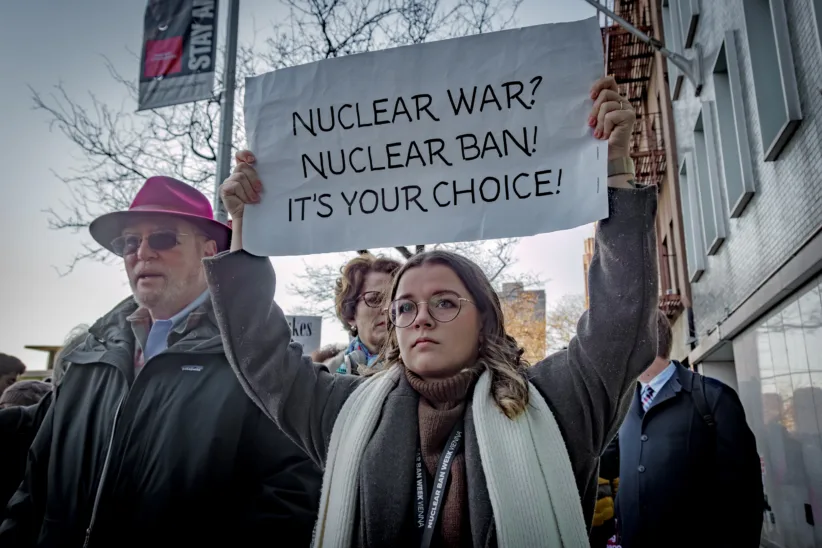The obligation to promote universal adherence to the Treaty
States parties and signatories to the Treaty on the Prohibition of Nuclear Weapons (TPNW) continued to pursue universalisation of the Treaty as a priority in 2024. They took a broad range of actions during the year to implement the obligation under Article 12 of the TPNW to encourage further states to sign, ratify, or accede to the Treaty, ‘with the goal of universal adherence’. In particular, they issued a joint appeal to all states that have not yet joined the Treaty to do so without delay.

‘We urge all states that have not yet done so to join the Treaty on the Prohibition of Nuclear Weapons without delay and without preconditions. We appeal to all states to engage cooperatively with the Treaty and work with us in support of our shared goal of a world free of nuclear weapons. We encourage all states to attend the Third Meeting of TPNW States Parties in March 2025.’ So said the joint statement that was delivered on behalf of the TPNW’s states parties and signatories at the 2024 Treaty on the Non-Proliferation of Nuclear Weapons (NPT) Preparatory Committee meeting in Geneva. In October, they delivered the same message at First Committee of the 79th UN General Assembly. Philemon Yang, the Assembly President, also called on all states to accede to the TPNW.
At the General Assembly, 57 states parties, 11 signatories, and 8 non-signatories (Afghanistan, Eritrea, Eswatini, Gabon, Guinea, Senegal, Tunisia, and Turkmenistan) co-sponsored the annual resolution on the TPNW, which called upon ‘all States that have not yet done so to sign, ratify, accept, approve or accede to the Treaty at the earliest possible date’. It also urged states ‘in a position to do so to promote adherence to the Treaty and its norms and underlying rationale through bilateral, sub-regional, regional and multilateral contacts, outreach and other means’. The resolution was adopted in December with the support of 127 states – two-thirds of the UN membership. Regional groupings also appealed for TPNW universalisation. In the First Committee, the African Group, which alone represents more than one in four of all UN membership, urged ‘all members of the international community, especially nuclear-weapon States and those under the so-called “nuclear umbrella”, to seize the opportunity to sign and ratify the Treaty at an early date’. The Caribbean Community, with 14 UN member states, urged ‘all States to engage constructively with this vital legal instrument’.
For more information, see the 2024 edition of the Nuclear Weapons Ban Monitor.
ARTICLE 12 - INTERPRETATION
- This provision obligates each state party to encourage states not party to sign, ratify, or accede to the TPNW, ´ with the goal of universal adherence´.
- The manner and frequency of the actions to be taken are not set out in the provision and are therefore left to the discretion of the state party. That said, any state party that sought to discourage adherence to the TPNW by a state not party would be in violation of this obligation.